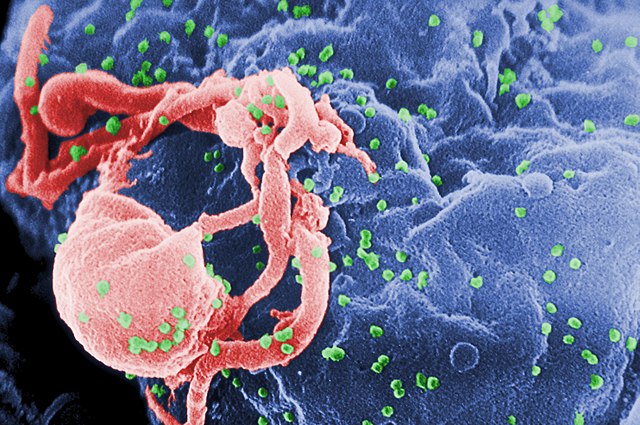
- Details
- By Native News Online Staff
On Monday, April 25, the Indian Health Service (IHS) announced it had received $5 million to fund the Ending the HIV Epidemic Initiative. It is the first time IHS has received funding for this initiative, supporting work toward the elimination of HIV and hepatitis C in Indian Country.
“We are excited about this new funding opportunity for Indian Country to address diagnosis, treatment, and prevention activities that are aimed at eliminating disparities and reducing HIV’s impact,” said Indian Health Service Acting Director Elizabeth Fowler in a statement. “We are committed to providing American Indians and Alaska Natives who are at risk, or are living with HIV, with the culturally-appropriate support and services they need.”
“At HHS, we continue to confront the HIV epidemic head-on by ensuring resources are focused on the communities and people who most need them,” said Department of Health and Human Services (HHS) Secretary Xavier Becerra in a statement. “This funding will help us reach people in Indian Country and engage people who are disproportionately impacted by HIV.”
The funds include $2.48 million for three-year cooperative agreements for tribes, tribal organizations, and urban Indian organizations to support activities that address HIV/HCV and sexually-transmitted infections. The deadline for tribes, tribal organizations, and urban Indian organizations to apply for the funding is June 17, 2022.
In addition to the cooperative agreements, approximately $1.5 million will support clinical training, including funding for ongoing case-based training and technical assistance.
Approximately $620,000 will support national infrastructure, and approximately $400,000 will support a national media campaign.
According to their statement, IHS is working to address barriers for people living in Tribal Nations and across Indian Country that limit opportunities for HIV education and testing. Stigma in Native communities can be a debilitating barrier preventing someone living with HIV or at risk for HIV from receiving the health care services they need and deserve.
This funding comes in addition to the several Indian Health Service activities that are also supported by the Minority HIV/AIDS Fund, which has provided national-level programs like web-based youth education and prevention services, clinical training for HIV care, expansion of pre-exposure prophylaxis for HIV prevention, case management support for people living with HIV, support of National Native HIV/AIDS Awareness Day, and indigenizing the National HIV/AIDS Strategy.
President Biden’s proposed budget requests $52 Million for IHS in fiscal year 2023 to treat or reduce the transmission of HIV and Hepatitis C.
The IHS, an agency in the U.S. Department of Health and Human Services, provides a comprehensive health service delivery system for approximately 2.7 million American Indians and Alaska Natives who belong to 574 federally-recognized tribes in 37 states.
More Stories Like This
End of Enhanced Obamacare Subsidies Puts Tribal Health Lifeline at RiskSanta Ynez Tribal Health Clinic to Host Free Pediatric Dental Clinic
Rez Vet Earns Global Recognition for Serving Navajo Nation's Animals
Chickasaw Nation Governor Bill Anoatubby leads groundbreaking for pediatric clinic
Cherokee Nation Eyes $4 Million Transitional Housing Program


